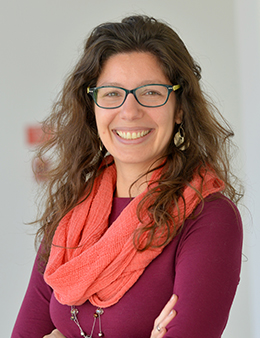Combined B.S./M.S. Program
INTRODUCTION
The Department of Civil and Environmental Engineering (CEE) offers a combined B.S./M.S. program that will allow students to earn both degrees in as little as five years. This accelerated program enables undergraduate students to begin their graduate experience early, and thereby receive both a more challenging education and the rewards of advanced learning activities.
BENEFITS
- Research experience
- Opportunity to take specialized courses with top faculty.
- Faster career advancement after graduation
- Higher salary
REQUIREMENTS
The B.S./M.S. opportunity is available to students who are currently enrolled in the CEE department. Students will complete all of the normal requirements for both the B.S. and M.S. degrees, but in a reduced time period because two 600-level (or above) courses will count towards the requirements for both degrees. The minimum requirements for acceptance into this combined program are:
- At least a 3.50 GPA at the time of admission.
- No more than 24 credits of ENCE courses remaining for the B.S. degree.
- No more than six credits of GenEd requirements remaining for the B.S. degree.
- Must have completed at least two semesters of CEE coursework at the University of Maryland College Park prior to applying for admission to the B.S./M.S. program.
- Must have identified a faculty advisor for the B.S./M.S. research project.
- The GRE is waived for students graduating from our CEE department with a GPA of 3.5 or above.
Participating in the B.S./M.S. program does not obligate you to apply to the M.S. program and complete all of the requirements for the M.S. degree. There is no penalty for deciding not to continue into the M.S. program. However, unless granted a leave of absence by the Graduate School Coordinator, a student who wishes to continue on to the M.S. program must do so the semester after they receive their B.S. Otherwise their double-counting courses will revert to counting for undergraduate credit only.
TIMELINE and APPLICATION PROCESS
**Please note that completing the B.S./M.S. program in full requires two separate application processes. The first is an application for the department, in order to be considered for the B.S./M.S. program while still an undergraduate. The second application is the official graduate school application. Students in the B.S./M.S. program must apply and be accepted to the CEE M.S. program under The Graduate School requirements, and will be required to do a thesis as part of the master’s program. Acceptance into the B.S./M.S. program does not guarantee your admission to The Graduate School.
- Sophomore Year
- Start thinking if this program might be for you - planning early will ensure that you’re able to keep your GPA high and complete the course requirements.
- Explore UMD faculty research interests and opportunities.
- Junior Year
- Find a faculty advisor for the B.S./M.S. program.
- Apply to the B.S./M.S. program
- Senior year
- Select your M.S. thesis topic and begin research with faculty.
- Take two 600-level (or above) courses to be counted for graduate and undergraduate (technical elective) credit. The two graduate courses must count as your technical electives, not your breadth electives. You should consult with your faculty advisor about which courses would be most appropriate for your future graduate work, and would fulfill your M.S. requirements.
- Apply to the Civil Engineering MS program.
- Deadlines
- February 1 (international students)
- May 1 (domestic students)
- Deadlines
- Graduate with a B.S. in Civil Engineering!
- “Fifth Year” (First year as a graduate student)
- Complete M.S. degree requirements, having already completed six credits as an undergraduate student:
- 18 credits of coursework
- 6 credits of research (ENCE 799)
- Master’s thesis and defense*
- Graduate with an M.S. in Civil Engineering!
- Complete M.S. degree requirements, having already completed six credits as an undergraduate student:
*Students in the B.S./M.S. program continuing onto the master’s portion will be required to complete a thesis. There is no non-thesis option for B.S./M.S. students.
Important: Completing the M.S. degree in one year as a graduate student is not guaranteed. The B.S./M.S. program simply makes the process easier, as the student has already completed some of the credit requirements. All M.S. students have five years to complete the degree.
PROGRAM CONTACTS
Undergraduate Advising and Student Services
Dr. Natasha Andrade, Associate Chair for Undergraduate Programs, nandrade@umd.edu
Dr. Isabella Kolar, Academic Advisor, icooper@umd.edu
Graduate Student Services
Dr. Cinzia Cirillo, Associate Chair for Graduate Programs, ccirillo@umd.edu
Anna Damm, Assistant Director of Graduate Student Services, adamm1@umd.edu
APPLICATION
To apply for admission please complete this online form.

Dr. Natasha Andrade
Associate Chair for Undergraduate Programs
Senior Lecturer
Top